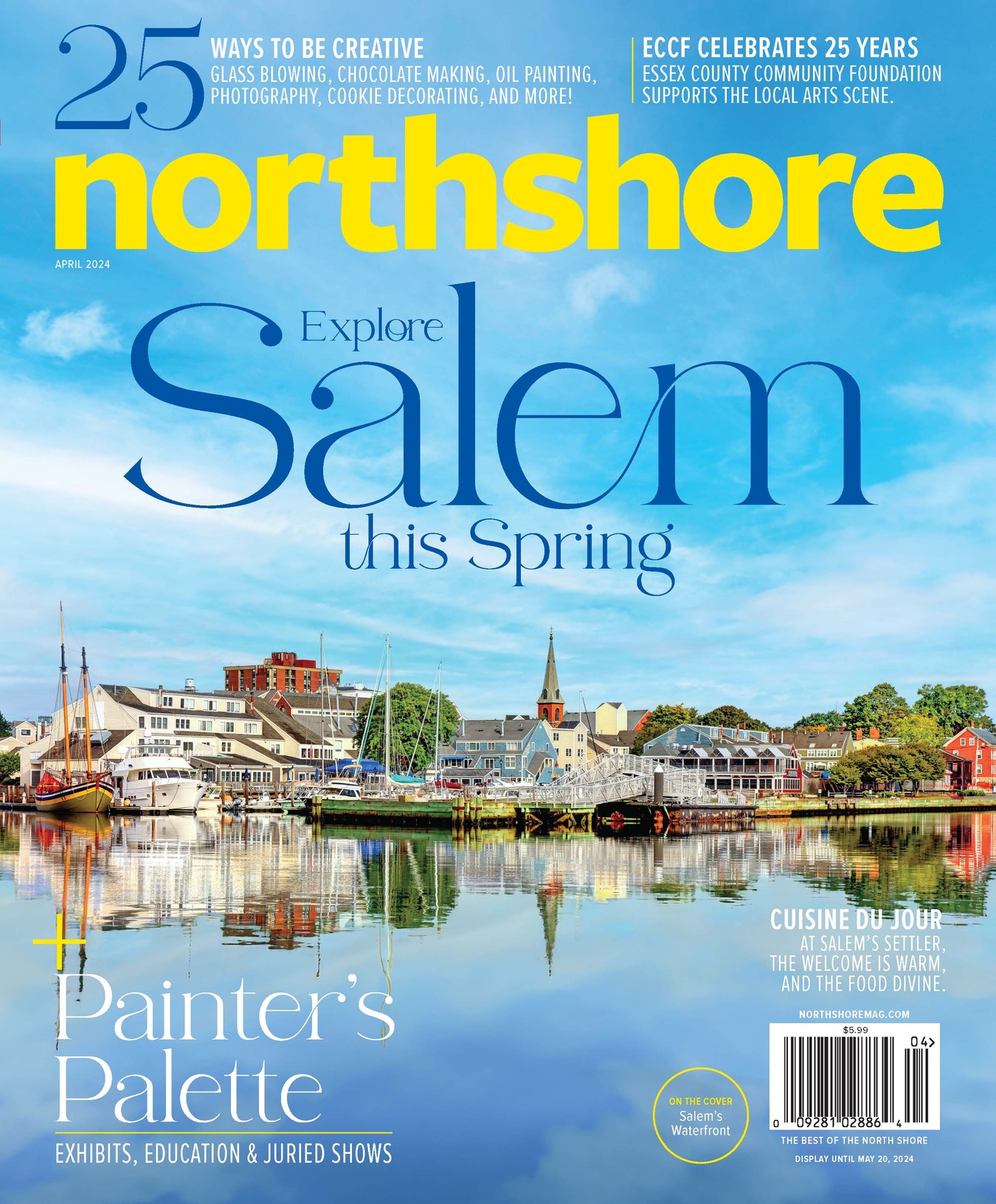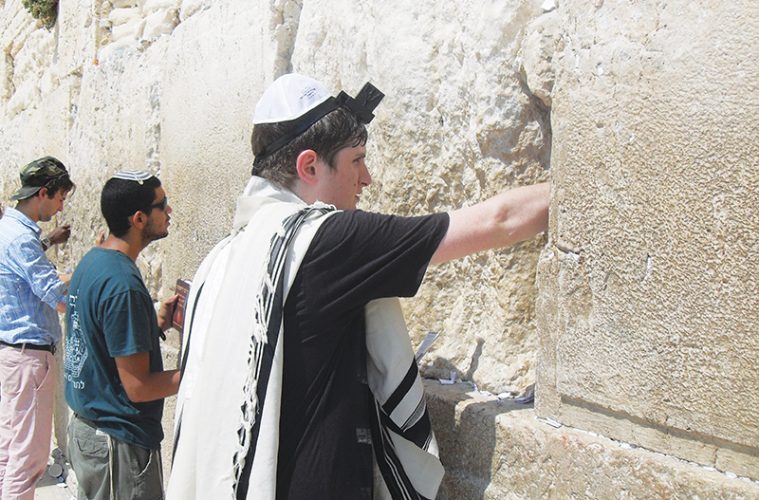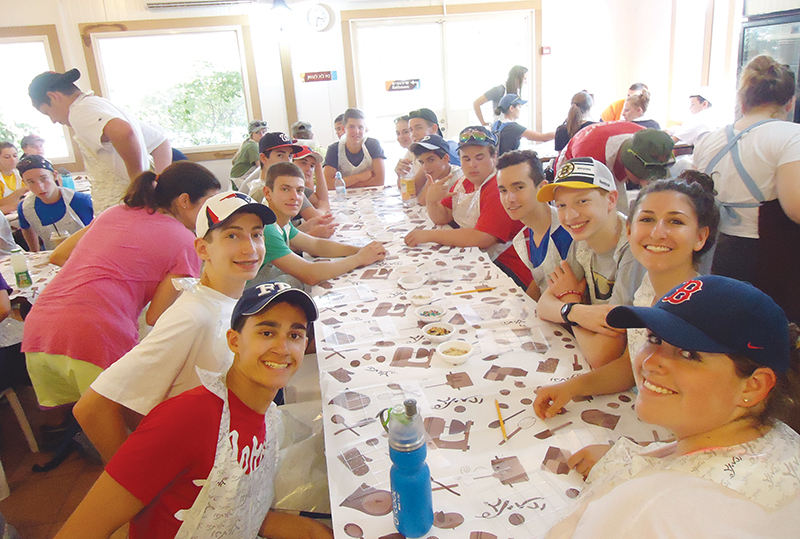Seventeen-year-old Georgetown resident Trevor Brown lobbies his congressman to support Israel; as he applies to college, he’s seeking out schools with a robust Jewish population; he attended the pro-Isreal lobbying group AIPAC’s high school summit in Washington D.C.; he goes to a Jewish summer camp; he founded a North Shore chapter of a national Jewish youth group; and at his Catholic school in Danvers (where his friends call him the “Ultimate Jew” or “Super Jew”—monikers he wears with pride), he and two other members of the Jewish Student Union went from class to class this fall, teaching other students about Jewish holidays.
Growing up on the North Shore, Brown didn’t always feel so connected to his Jewish identity. But a 12-day trip to Israel last year changed that—for good, Brown hopes.
“Israel gave me this whole new outlook on the religion,” he says. “I was always missing the social aspect of it. I just realized how much I love being around a big Jewish community, and how much it means to me. It’s hard to explain why. I get a completely different vibe. A different part of myself opens up.”
Since 1971, Jewish teenagers on the North Shore have been making pilgrimages to Israel through Y2I (Youth to Israel), a program run by the Salem-based Lappin Foundation. Businessman Robert Lappin began the trips as a way of fostering Jewish identity in young people, and in recent years his foundation has annually sent around 100 kids to Israel, or around 60 percent of the Jewish 16-and 17-year-olds in the 23 cities and towns that the group serves.
“At that time, [the early 1970s], I became concerned about the assimilation of Jewish people,” says Lappin, who, at 92 years old, still sports his trademark ponytail and owns and operates the Shetland Park waterfront business center in Salem, where his foundation’s offices are located. “I wanted to see if sending our kids to Israel as teenagers would help to change that trend about which I was concerned.”
For 43 years, Lappin has relied on anecdotal accounts like Brown’s to show that the trips really do help young Jews feel a deeper connection with their heritage. But now he has hard data, too. The Lappin Foundation commissioned a study, released in September, showing that alumni of its trips marry other Jews and raise their children as Jewish at far higher rates than other American Jews.
|
According to the study, 72 percent of Y2I alums in-married, compared to just 49 percent of Jews in a Pew Research Center survey; 90 percent of Y2I participants were raising their children Jewish, compared with 60 percent in the Pew poll. Additionally, Y2I participants were more likely to have mostly Jewish friends and belong to a synagogue (although they were actually somewhat less likely to participate in religious services or donate to Jewish causes).
Lappin is using the data to push Birthright Israel, the national organization that sponsors Israel trips for young Jewish adults, to lower its eligibility age from 18 to 16. So far, Birthright Israel has resisted Lappin’s efforts. The Lappin Foundation’s study shows that Birthright alums marry Jews and raise their children Jewish at similar rates to Y2I alums, but Lappin argues that trips for teenagers also equip them to combat anti-Semitism before they go to college.
All of this takes for granted, of course, that in-marriage is a good thing, something to be desired. And if in-marriage is a good thing, does that mean intermarriage is a … bad thing? It’s a sticky question, one that pits the ideal of America-as-a-melting-pot against the reality of what’s necessary to preserve the traditions of a minority.
“I don’t think anybody can tell anybody else who they should marry,” Lappin says. “But I think Jewish people and Jewish children should understand that statistics show, in intermarried families, most children are not brought up Jewish. Therefore, carrying the idea to its extreme, the Jewish people…would disappear. So it’s important for that reason that Jewish people understand, at least, what the consequences of assimilation are. It’s a matter of survival of the Jewish people.”
Lappin says that Jews aren’t merely members of a religion, or even an ethnicity, but rather a family. “We’ve made contributions in all areas of human endeavor that benefit mankind, and I feel that it’s important that the family continues to exist and hopefully to prosper and live in peace some day,” he says.
Lappin first traveled to Israel himself in 1964. At the time, he was busy and therefore reluctant to go, but the trip had such an impact on him that he still gets emotional discussing it today, 50 years later. While there, he watched a ship carrying Jewish refugees from the Soviet Union dock, and when the old and sick travelers stepped onto Israeli soil, they knelt and kissed the ground, grateful for a homeland that accepted them in spite of their circum- stances. “I told myself, this is a very unique, wonderful country,” Lappin says.
That experience is emblematic of what, he feels, it means to be Jewish. “The hallmark of the Jewish people is that we are responsible for each other,” he says. “And that’s what an Israel trip conveys.”
Brad Sontz, a 48-year-old Marblehead native and resident, went to Israel with Y2I three decades ago, and says it’s difficult to quantify the trip’s impact on his identity. But he did go on to marry a Jewish woman (who also traveled to Israel with Y2I on a separate trip, before they met). Not only did they raise their children Jewish, but their 17-year-old daughter recently traveled to Israel with Y2I, too.
Still, Sontz says he’s undecided about how important it is for his children to marry other Jews. “I have two daughters and a son, and to me, the most important aspect of their life is that they are happy and satisfied,” he says. “Is it important for me that they marry a Jewish mate? I’m torn. I want them to be happy, but I think in life in general, there are many things to argue about. Religion should not be one of them. So if you choose not to marry within your religion, you should decide how to raise your children [beforehand].”
Charlotte Freed, a Manchester-by-the-Sea 16-year-old, is the product of a mixed marriage. Her mother is Catholic, and her father is Jewish, and although she considered herself Jewish growing up, she says she “didn’t really understand what it meant” until she traveled to Israel with Y2I. Before the trip, she hadn’t considered whether she wanted to marry a Jewish person, but has since shifted to a mindset of “finding someone Jewish if I can.”
Even for Trevor Brown, who’s so fully embraced his Jewish heritage since traveling to Israel, there’s no guarantee that he’ll marry another Jew. (He’s not even done with high school, after all.) But the trip seems to have made it more likely.
“Rather than a necessary thing, it’s more frosting on the cake,” Brown says. “Like, oh, that’s cool that she’s Jewish. My way of looking at it is, if you love each other, you’ll respect each other’s views, even if you’re not both Jewish. I’ll leave it to see how it ends up.” lappinfoundation.org


 Young people connect through faith and fun
Young people connect through faith and fun